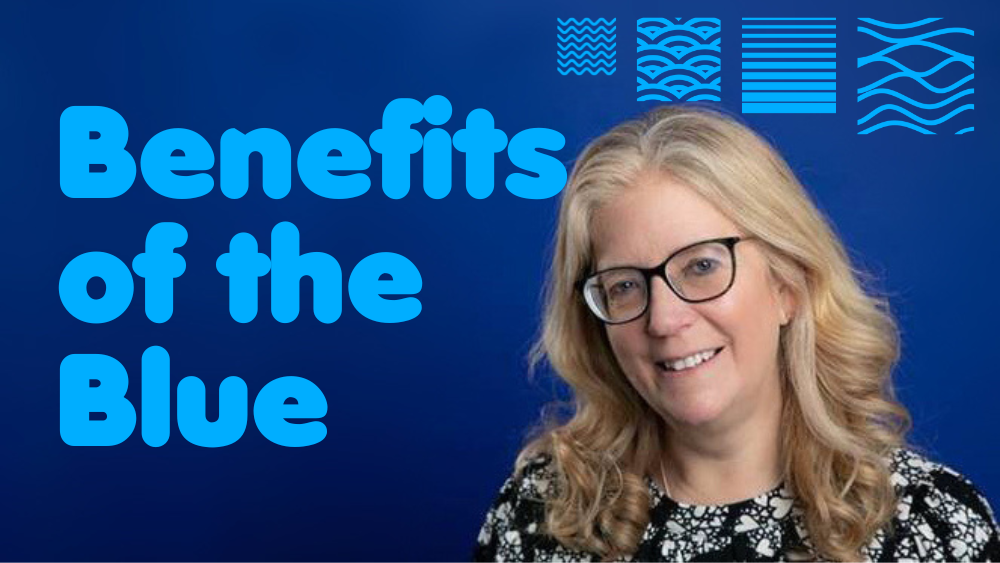Guest blog by Elaine Hayes, CEO of Plymouth Sound National Marine Park
13 – 19 May marks Mental Health Awareness week. The aim is to raise awareness of mental health conditions and to reduce the stigma associated with mental illness.
Being mentally as well as physically well is really important – our mental health affects us, our family, our friends and our work. Mental wellbeing is reducing – poor mental health is estimated to cost £105 billion each year and yet there are many things we can do to help ourselves.
The evidence suggests that accessing blue spaces are as good if not better than green for your mental wellbeing. Here in Plymouth, we are very lucky to have relatively easy access to the sea and all the benefits this can bring. So what is it about being by the sea that is so good for us?
Have you ever thought that you sleep better after a day at the beach? On the coast air quality is usually better and has higher levels of oxygen. Sea air itself helps your body absorb oxygen better and also helps balance your serotonin levels. Serotonin is one of the hormones that help you feel happier. So being beside the sea you can literally breathe yourself better!

Being on the coast can help ward off depression and anxiety – a study conducted by Exeter University showed that people living near the coast rate their health better than those who live inland and are less likely to have mental health symptoms. These benefits can be achieved without ever dipping your toe in the water! For those who want to be in the water, the minerals present in the sea can help with a range of skin conditions – and taking physical exercise in water is kinder to your joints as well!
But why don’t people spend more time on, in and under the water? This is a difficult question to answer and comes down to a few key indicators – your socio-economic group – the poorer you are the less likely you are to visit the coast; your age and physical health, and your ethnicity. I would also add family habits and culture.
The PSNMP Horizons Project is centered on improving access to our amazing coastline; to do this we have spent the last 3 years (and keep) listening to feedback from communities across the city to help us understand the barriers and how we can best invest the money from the National Lottery Heritage Fund to change and improve access for people. Our work to date has highlighted a range of issues – cost being the most common problem – the cost of swimwear, cost of transport, simply the cost of a day out – and this was before the cost of living crisis took hold. There is a need to give people more information so they feel confident that they can safely and enjoyably access the seaside. Access to the sea isn’t a privilege but a right that all should be able to enjoy.


